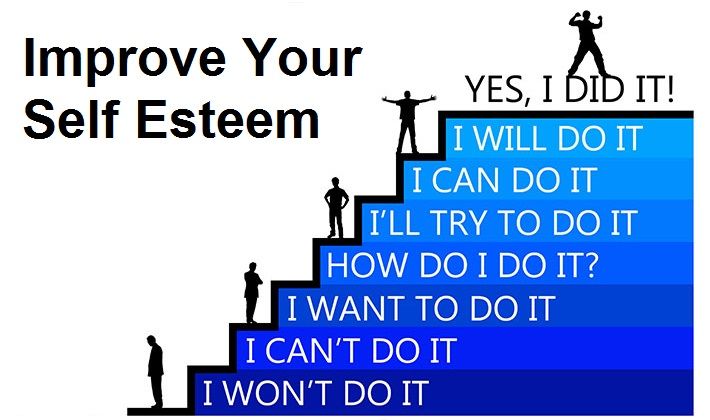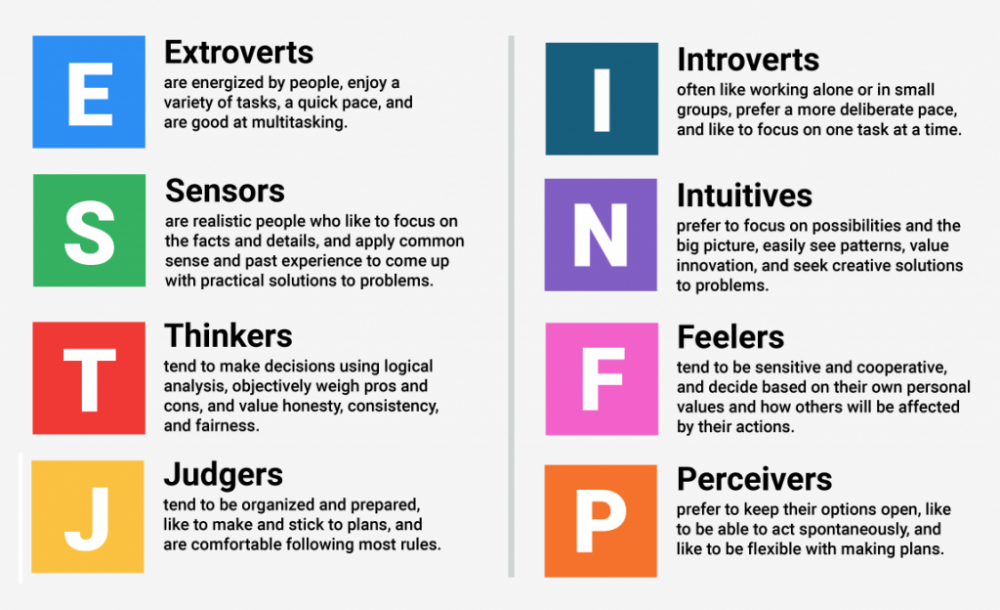Food anti stress
Top Foods to Relieve Stress
NOURISH
Posted April 21, 2021
- Asparagus can stabilize your mood
- Berries help to lower blood pressure and cortisol levels
- Nutrients in certain foods can reduce stress
Certain foods can enhance your body's ability to handle stress, packed with essential nutrients needed to boost your mental state. Try incorporating some of these foods into your diet to help relieve stress naturally.
Oatmeal
This long time comfort food, is a complex carbohydrate. It keeps your blood sugar steady and reduces the level of stress hormones in the brain. Oatmeal helps to relieve stress by releasing the chemical serotonin, which increases relaxation, calmness and creativity.
Pro tip: Skip the refined sugar. Instead make oatmeal with apples and raisins for a touch of sweetness and extra vitamin C.
Asparagus
This spring time vegetable is not only high in iron, it is high in folate, one of the many B vitamins. Asparagus stabilizes your mood and helps to reduce depression and anxiety.
Pro tip: This versatile vegetable can be eaten fresh, grilled, steamed , sautéed, or broiled with olive oil.
Salmon and tuna
Fatty fish such as salmon and tuna are rich in omega-3 fatty acids. These oils keep the stress hormone cortisol under control while regulating adrenaline levels. Omega-3 fatty acids have been found to protect against heart disease, stroke, depression, and may assist in lowering blood pressure.
Pro tip: For the non-fish eaters, flaxseed, walnuts, and spinach are also rich in omega-3 fatty acids.
Berries
Strawberries, raspberries, blueberries and blackberries are loaded with anitoxidants and fiber. Yet it's the high amount of Vitamin C, that makes berries a stress fighting food. Vitamin C assist the body to return blood pressure and cortisol to normal levels after they have peaked.
Pro tip: Enjoy them fresh, frozen or mixed into a smoothie.
Oysters
While oysters may be best known as an aphrodisiac, they are also a stress relieving food chock full of B vitamins and magnesium. B vitamins help stabilize your mood and relieve symptoms of anxiety and depression. Magnesium levels tend to drop the more stressed we get, this can lead to fatigue and headaches. Add food rich in magnesium to your diet to fight stress and stress-related diseases, such as heart attacks and high blood pressure.
Pro tip: B vitamins also aid in memory and relieve premenstrual syndrome (PMS).
Dark chocolate
This sweet treat not only satisfies your taste buds, but helps relieve stress by reducing the level of cortisol in the body. Dark chocolate is made from the cacao plant, which contains antioxidants that help prevent heart disease. Be aware that some dark chocolate desserts may contain added sugars, so treat yourself in moderation.
Pro tip: Look for dark chocolate with a cocoa content of 70 percent or higher.
Chamomile tea
Chamomile tea is among the most-well known stress-soothing teas. It helps to calm stomach distress and relieve migraine-type headaches. Chamomile tea decreases stress with its wonderful sedative and muscle relaxing properties.
Pro tip: After a stressful day, sip a cup before bed and peacefully drift off for a goodnight’s sleep.
Stress is part of our daily lives. Remembering to make good choices about the foods you eat will give your body the essential nutrients to keep you staying healthy and functioning at your best.
WHAT YOU CAN DO
MORE LIKE THIS
Avoid the freshman 15
Posted July 29, 2017
Continue reading
Is your teen quick to respond?
Posted March 24, 2017
What to eat before a workout
Posted June 29, 2015
Size does matter in food portions
Posted October 24, 2016
EMPOWER YOURSELF
Get fun, inspiring, provider-reviewed articles sent to your inbox.
Sign up for our email newsletter
10 Best Foods to Fight Off Stress
Next time your stress levels start soaring, fill your plate with these foods that are scientifically proven to help you feel less frazzled.
By Kalah SiegelMedically Reviewed by Kelly Kennedy, RDN
Reviewed:
Medically Reviewed
Certain foods contain nutrients that can help fend off stress.
iStockThere are many ways to manage and even reduce stress levels when you’re feeling tense. Food can be one of your biggest allies — or enemies. It can make your stress levels go down or up, so it’s critical to pay attention to what you’re eating when you’re feeling frazzled. Not to mention, just being stressed can increase your need for certain nutrients, such as vitamin C, vitamin B, selenium, and magnesium, noted a review published in June 2016 in the Journal of Nutrition & Food Sciences.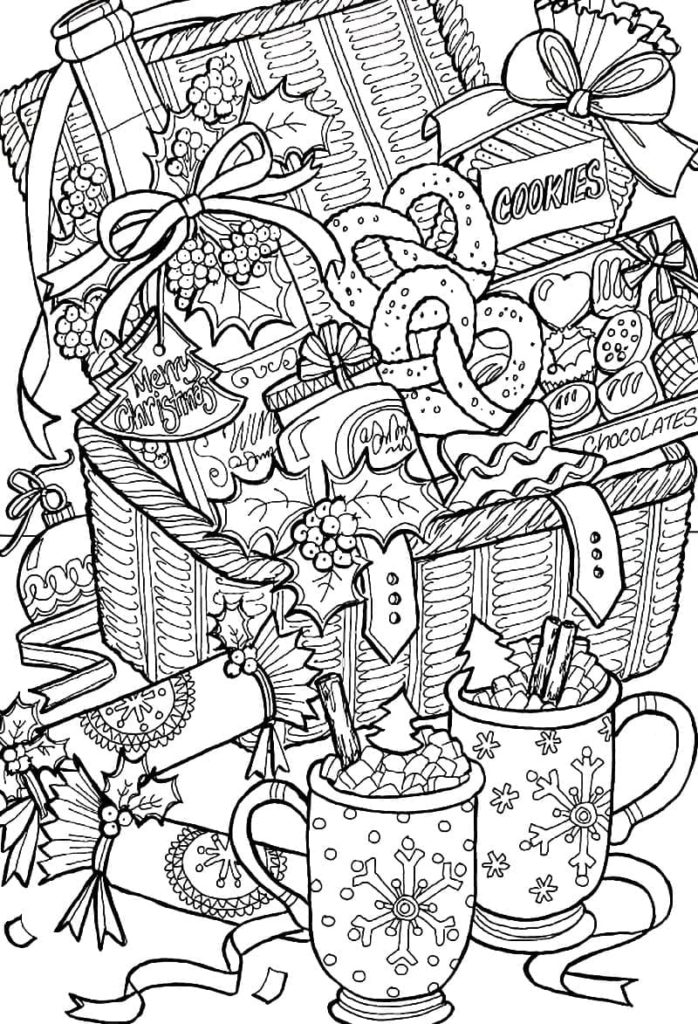
An article published in August 2015 in the journal Stress suggested that the amount and quality of nutrients you take in over time can impact the body’s neural circuits that control emotion, motivation, and mood. Other research, such as a study published in October 2017 in the journal Psychosomatic Medicine: Journal of Behavioral Medicine, has pointed to gut microbiota — microorganisms in the intestine comprised of good and bad bacteria — as an essential link to the relationship between what you eat and drink, and how you feel.
“Microbiome health, or gut health, affects your mood, emotions, and psychological health,” says Alice Figueroa, RDN, MPH, a nutritionist in New York City and founder of Alice in Foodieland.
Fighting stress with food is a tactic available to everyone, Figueroa says. No expensive supplements or complex methodology is required.
Unhealthy eating patterns can send stress levels skyrocketing and potentially increase your risk of health problems in the future if you don’t address them.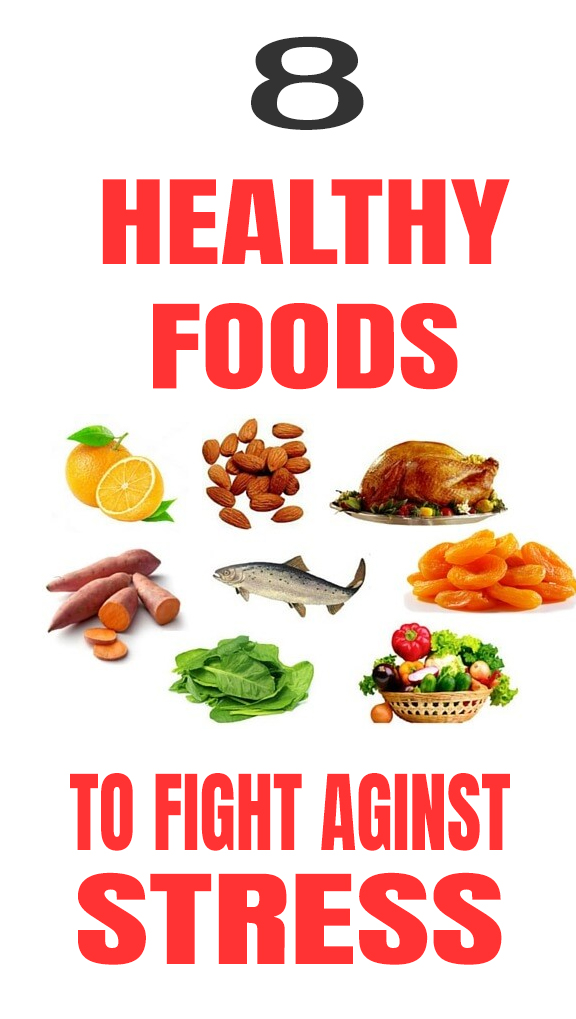 According to the June 2016 review in the Journal of Nutrition and Food Sciences, a well-balanced and nutritious diet was likely the single most important ingredient for good health. So the next time you’re under pressure, arm yourself with this delicious arsenal of 10 stress-busting pantry staples:
According to the June 2016 review in the Journal of Nutrition and Food Sciences, a well-balanced and nutritious diet was likely the single most important ingredient for good health. So the next time you’re under pressure, arm yourself with this delicious arsenal of 10 stress-busting pantry staples:
1
Herbal Tea Helps Promote Feelings of Warmth and Calmness
Marti´ Sans/StocksySometimes it's the feeling that food or drinks induce, not their nutrients, that helps reduce stress. Drinking a warm cup of tea is one way to help make yourself feel calmer, says Sandra Meyerowitz, MPH, RD, an online nutrition coach and owner of Nutrition Works in Louisville, Kentucky.
Past research has suggested that holding and sipping a warm beverage increases feelings of interpersonal “warmth” and friendliness. There's a soothing effect of sipping a warm drink, regardless of the flavor — but certain herbs, like lavender and chamomile, have been shown to have a relaxing effect on their own, Meyerowitz says.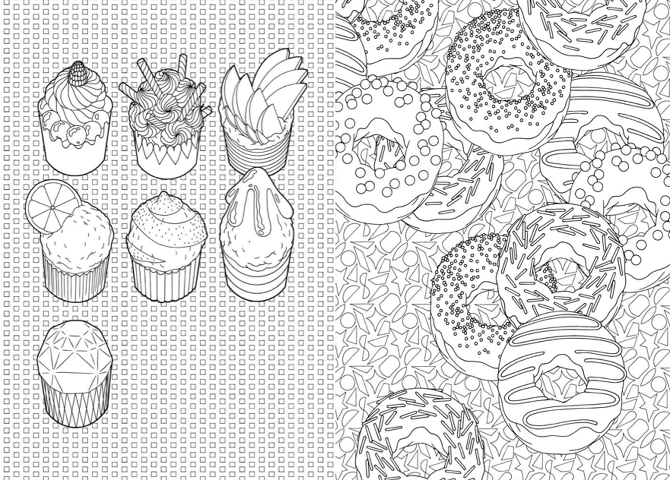
Figueroa agrees herbal tea is great for winding down but says green tea is perfectly fine when you need a small jolt of caffeine because it’s full of flavonoids, which studies show support brain health. They can help protect neurons against injury induced by neurotoxins, suppress neuroinflammation, and promote memory, learning, and cognitive function, according to previous research.
According to the Mayo Clinic, a cup of brewed green tea contains between 25 and 29 milligrams (mg) of caffeine versus black brewed coffee’s 95 to 165 mg per cup. Therefore, green tea can also be a preferable choice compared with coffee if you’re looking to chill out.
Flavonoids are a class of good-for-you plants and fungi also found in dark chocolate, citrus fruits, and wine. Despite green tea’s green light, Figueroa says to cut the caffeine in the afternoon to increase your chances of a good night’s rest.
RELATED: Are You Sensitive to Caffeine?
2
Dark Chocolate Offers an Antioxidant-Rich Indulgence
Yelena Yemchuk/iStockDark chocolate in the diet can reduce stress in two ways — via its chemical impact and its emotional impact. Chocolate feels like such an indulgence that it can be a real treat to simply savor a piece of it, and that feeling alone can help to reduce stress, says Meyerowitz.
Chocolate feels like such an indulgence that it can be a real treat to simply savor a piece of it, and that feeling alone can help to reduce stress, says Meyerowitz.
Dark chocolate, which is rich in antioxidants, may also help reduce stress by lowering levels of stress hormones in the body, according to a study that followed participants who ate about 1.5 ounces (oz) per day for two weeks. But be sure to enjoy dark chocolate in moderation, advises Meyerowitz. That means you should aim to eat only one-fourth of a small dark chocolate bar (about 1 oz). Also, make sure the bar doesn’t contain an unnecessary surplus of added sugar, says Figueroa.
It’s also important to choose high-quality dark chocolate, she says. You may have heard about the “bean-to-bar” movement, which focuses on high-quality ingredients and in-house responsibility for every aspect of the chocolate making process. This “farm-to-table” approach ensures the bar is packed with pure components and no hidden additives or chemicals.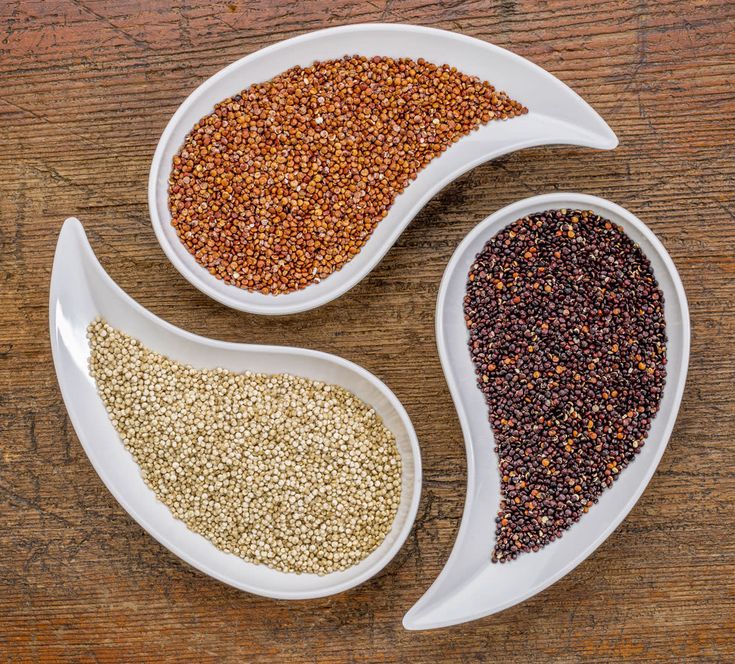 Look on the label for two or three ingredients only, such as cacao beans, cane sugar, and cocoa butter.
Look on the label for two or three ingredients only, such as cacao beans, cane sugar, and cocoa butter.
3
Whole Grains Provide a Mood-Boosting Way to Carbo-Load
Getty ImagesAccording to prior research, carbohydrates can temporarily increase levels of serotonin, a hormone that boosts mood and reduces stress. Once serotonin levels are increased, people under stress have better concentration and focus. Just make sure to choose healthy, unrefined carbohydrates, like sweet potatoes and whole grains, for better nutrition, and limit simple carbs, such as cookies, cake, and “white” foods, including white pasta and white bread. Unrefined carbs cause a quick spike and crash of blood sugar, while complex carbs contain vitamins and minerals as well as fiber, and so take longer to digest and have less of an immediate impact on blood sugar, according to Harvard School of Public Health.
Because fiber can also support a healthy gut microbiome, reach for high-fiber foods, including whole rye, buckwheat, and brown rice, says Figueroa.
RELATED: What’s the Difference Between Healthy and Unhealthy Carbs?
4
Avocados Offer Stress-Busting Omega-3 Fatty Acids
iStockAvocados are not only delicious mashed into guacamole or sliced and added to a salad — they also offer omega-3 fatty acids. These healthy essential acids are known to reduce stress and anxiety, boost concentration, and improve mood, according to the National Center for Complementary and Integrative Health. Meyerowitz emphasizes the importance of getting the right amount of omega-3 fatty acids in your diet for overall health — in addition to the benefit of helping reduce stress — which the federal government’s dietary guidelines define as 1.6 g of ALA (alpha-linolenic acid, a form of omega-3 fats) for adult men and 1.1 g of ALA for adult women.
The possible superpower of avocados goes beyond their omega-3 fatty acids. They also consist of phytochemicals, fiber, and essential nutrients, according to the National Health and Nutrition Examination Survey. The survey, which was published in January 2013 in the Nutrition Journal, suggested that avocados have been linked to better diet quality and nutrient intake as well as a lower risk of metabolic syndrome, which is a group of conditions that include high blood pressure and obesity. It's important to note, however, that the survey only suggested an association, not a cause-and-effect relationship, between eating avocados and these improved health markers.
The survey, which was published in January 2013 in the Nutrition Journal, suggested that avocados have been linked to better diet quality and nutrient intake as well as a lower risk of metabolic syndrome, which is a group of conditions that include high blood pressure and obesity. It's important to note, however, that the survey only suggested an association, not a cause-and-effect relationship, between eating avocados and these improved health markers.
5
Fish Can Boost Your Heart Health While Fending Off Stress
Nina Van Der Kleij/GettyImagesFight stress and help prevent heart disease by adding seafood to your plate. Fatty fish in particular are a great option because they’re heart-healthy, and their omega-3s may help ease depression because the nutrients easily interact with mood-related brain molecules, according to the Harvard Health Blog. Fatty fish include tuna, halibut, salmon, herring, mackerel, sardines, and lake trout, according to the American Heart Association.
Not a fish fan? There are other whole-food options, like seaweed, chia seeds, flaxseeds, walnuts, and fortified food, such as certain brands of eggs, milk, soy milk, and nut milk. You can also try omega-3 supplements in the form of fish oil, which can be found at your local drugstore or grocery store. The Harvard Health Blog noted they’re tied to a lower risk for heart disease and stroke.
Figueroa says fish oil is fine if you’re not eating a balanced diet that is rich in omega-3s and includes eating fish at least twice a week. But she cautions that it’s important to check with your doctor or registered dietitian before beginning a supplement routine, so you can figure out the best brand and dosage for your health goals.
RELATED: The Best and Worst Fish for Your Health
6
Warm Milk Can Help You Get a Good Night’s Sleep, Aiding Stress Management
Pongsak Tawansaeng/GettyImagesSipping warm milk before bed is a centuries-old home remedy for getting a better night’s sleep.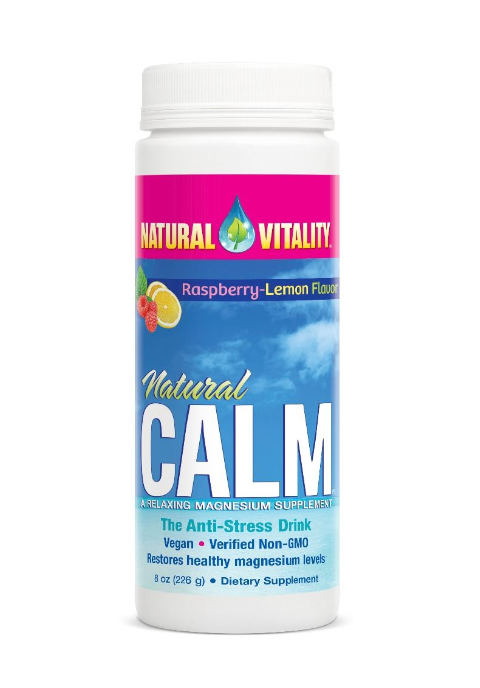 According to SleepAdvisor.org, warm milk can have a relaxing effect on the body as well as on a psychological level. For people who grew up drinking warm milk before bed, the routine can signal that it’s time to go to sleep, for example. Also, the act of sipping a warm beverage curled up on the couch is innately relaxing.
According to SleepAdvisor.org, warm milk can have a relaxing effect on the body as well as on a psychological level. For people who grew up drinking warm milk before bed, the routine can signal that it’s time to go to sleep, for example. Also, the act of sipping a warm beverage curled up on the couch is innately relaxing.
Calcium-rich foods are an essential part of a healthy diet for bone health, but this nutrient may also help reduce depression, according to a study published in December 2012 in the journal Nutrition Research and Practice. Milk and other dairy foods with calcium and added vitamin D can help muscles relax and stabilize mood — one study, published in January 2017 in the journal Obstetrics and Gynecology, even found that it can also ease symptoms of premenstrual syndrome.
Figueroa says the main stress reducer here is calcium. If milk isn’t your thing, other dairy sources, like yogurt and cheese, are excellent sources of calcium, according to according to MedlinePlus. If you’re lactose intolerant, canned salmon, almonds, sunflower seeds, and green leafy veggies, like kale, broccoli, turnip greens, and bok choy, are also sources of calcium, the website notes.
If you’re lactose intolerant, canned salmon, almonds, sunflower seeds, and green leafy veggies, like kale, broccoli, turnip greens, and bok choy, are also sources of calcium, the website notes.
7
Nuts Are a Great Stress-Busting Snack and They’re High in Healthy Fat
Julia Sudnitskaya/iStockNuts are full of nutrients, including B vitamins, along with healthy fatty acids. Meyerowitz says B vitamins are an important part of a healthy diet and can help reduce stress. Almonds, pistachios, and walnuts may even help lower blood pressure levels. According to a past study, pistachios in particular can have a role in reducing stress levels. Just remember to limit servings to just a handful a day to avoid excess calories.
Nuts and seeds are also high in magnesium, and that’s a plus, Figueroa says, because magnesium has been linked to better anxiety management. Findings from a review published in April 2017 in the journal Nutrients suggested that magnesium benefits individuals with mild to moderate levels of anxiety, but more trials are needed before making this treatment recommendation across the board.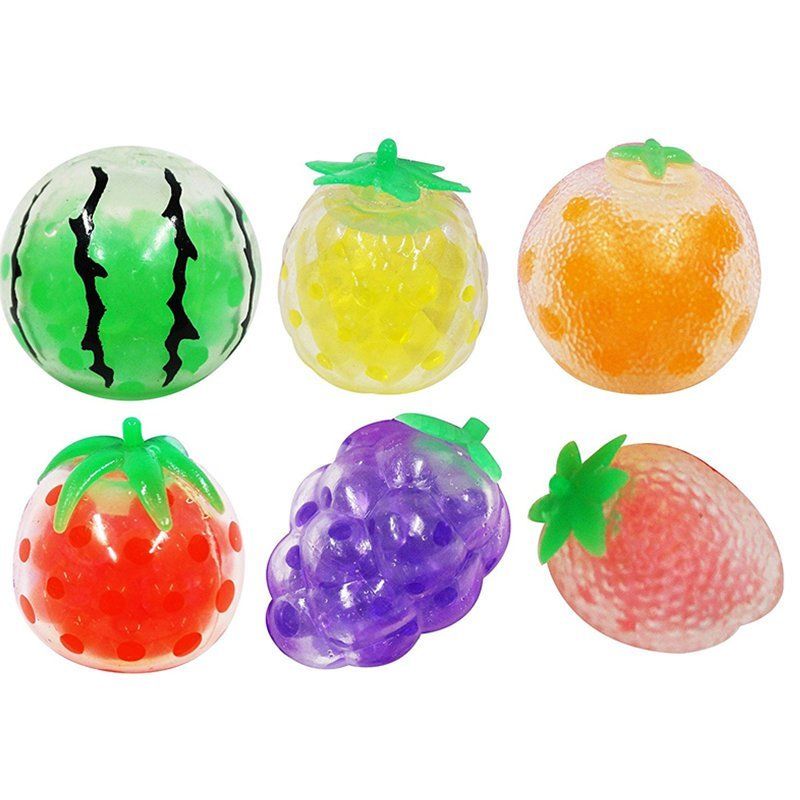
RELATED: 8 Foods High in Magnesium
8
Citrus Fruits and Strawberries Contain Vitamin C, Which Help Fight Stress
James A. Guilliam/GettyImagesSome studies have found that high levels of vitamin C may help ease stress levels. One double-blind study, published January 2015 in the Pakistan Journal of Biological Sciences, reported that vitamin C reduced stress levels in participants taking 500 mg per day, and also pointed to possible anxiety prevention. Another study, published in November 2013 in the Pakistan Journal of Biological Sciences, looked at vitamin C and vitamin E and found a significant decrease in anxiety levels in the vitamin C group compared with other groups. Eating fruits like oranges, grapefruits, and strawberries is a good place to start.
9
Probiotics Can Create a Healthy Gut Microbiota, Helping You Manage Stress
Getty ImagesThe best way to support healthy gut hormones is with good-for-you bacteria called probiotics, Figueroa says. According to Harvard Health Publishing, probiotics can help boost the immune system, protect against harmful bacteria, and improve digestion and absorption of nutrients. An article published in December 2018 in University Health News cited several studies that found gut health has a direct correlation to improving anxiety, depression, and mood. One way is that gut bacteria can produce molecules with neuroactive functions, including serotonin and gamma-aminobutyric acid (GABA), which positively influence mood.
According to Harvard Health Publishing, probiotics can help boost the immune system, protect against harmful bacteria, and improve digestion and absorption of nutrients. An article published in December 2018 in University Health News cited several studies that found gut health has a direct correlation to improving anxiety, depression, and mood. One way is that gut bacteria can produce molecules with neuroactive functions, including serotonin and gamma-aminobutyric acid (GABA), which positively influence mood.
Probiotics can be available in supplement form, but it’s unregulated by the U.S. Food and Drug Administration (FDA) and the pills can be more expensive than their food form, Figueroa says. Some of the top-rated brands run for more than $40 for a month’s supply, for instance.
Fortunately, probiotics occur naturally in food, too, and appear to be slightly better than the pill form, though both are efficient carriers for good bacteria, according to a study published in August 2014 in the journal Critical Reviews in Food Science and Nutrition.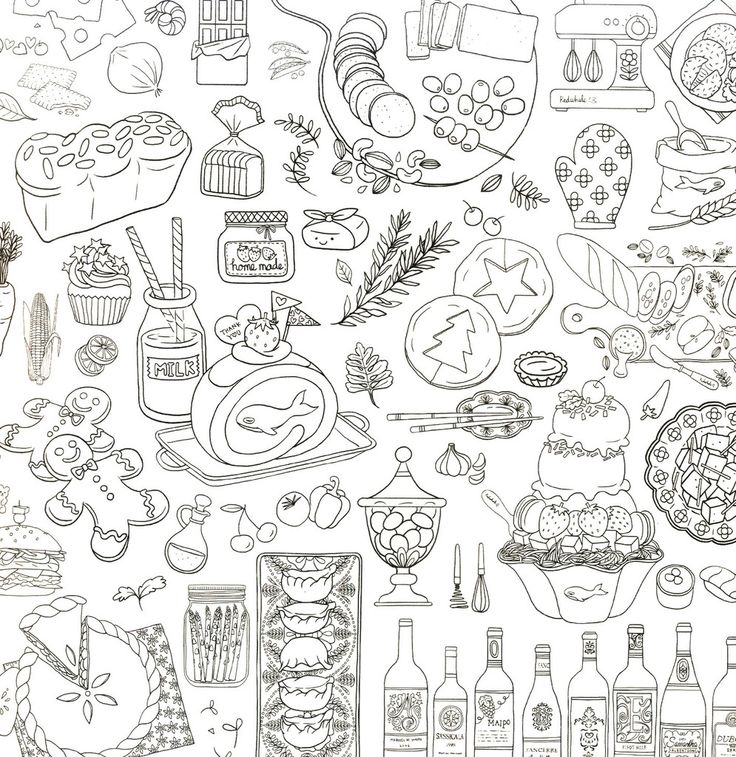
Figueroa’s favorite is kefir, a fermented yogurt drink, which is available in both dairy and vegan forms. She also recommends yogurt and fermented foods, including kombucha and miso, a Japanese fermented bean paste that can be found in miso soup.
RELATED: How Your Gut Microbiome May Affect Diabetes
10
Foods High in Fiber May Reduce Stress and Anxiety
Antonios Mitsopoulos/GettyImagesAs Figueroa mentioned, fiber-rich foods are gut-friendly and can play a role in lowering stress. According to a review published in July 2018 in the journal Nutritional Neuroscience, a high-fiber diet may be linked with reduced anxiety, depression, and stress. A preliminary study on rats published in the journal Pharmacological Research suggested that fiber may help fight oxidative stress and inflammation — two effects that previous research tied to cancer, along with other health conditions.
To add more fiber to your diet, Figueroa recommends eating beans, green peas, berries, almonds, pistachios, flaxseed, sesame seeds, and lots of greens, like kale and broccoli. Whole grains are also fiber champs. Often whole grain–based foods will have a symbol or wording on the package saying so, but look for “whole grain” or “whole wheat” listed in the first ingredient to be sure.
Whole grains are also fiber champs. Often whole grain–based foods will have a symbol or wording on the package saying so, but look for “whole grain” or “whole wheat” listed in the first ingredient to be sure.
“We hear it all the time: ‘eat foods that are rich in fiber,’ and it’s because they balance your blood sugar and prevent spikes in your insulin levels,” Figueroa says.
A blood sugar crash can induce fatigue, anxiety, shaking, irritability, and trouble concentrating, according to the Mayo Clinic. There’s a hormonal response when blood sugar gets low — a rapid release of epinephrine and glucagon, followed by a slower release of cortisol and growth hormone, according to the University of California in San Francisco — so keep the pantry full of fiber-rich foods and avoid blood sugar spikes and plummets brought on by empty carbs, such as chips and candy.
Additional reporting by Diana Rodriguez.
7 foods to help relieve anxiety and anxiety. Reedus
Anti-stress food: 7 foods to help relieve anxiety and anxiety. reedus
reedus - Useful
- Food
8 0 2771
- April 27, 2020, 19:07
- Stanislav Timonov, journalist for Reedus
Eating is one of the easiest and fastest ways to relieve stress. The main thing is not to get too carried away and not to seize every minor trouble, so as not to start stressing and worrying about the state of your figure.
We have compiled a list of tasty and healthy antidepressants.
Dark chocolate
Chocolate is a source of phenylethylamines and tyrosine: substances that affect the body's production of serotonin and dopamine (neurotransmitters that have a positive effect on our mood). Dark chocolate also lowers levels of cortisol, the stress hormone.
Dark chocolate also lowers levels of cortisol, the stress hormone.
© pixabay.com
Yoghurt
The probiotics contained in yogurt can positively influence the functioning of brain areas responsible for emotions and sensations, as well as reduce the effect of free radicals on the nervous tissue of the brain. You can make a good probiotic yogurt yourself using bacterial starter (available in pharmacies) and milk.
Bananas
Contains the amino acid tryptophan, which produces serotonin (the feel-good hormone) and melatonin (the sleep hormone). Therefore, bananas can help not only relieve anxiety and relax, but also fall asleep soundly.
© pixabay.com
Blueberries and blueberries
These berries are rich in antioxidants and vitamin C, which helps reduce the stress hormone cortisol and boost immunity. Therefore, do not miss the opportunity to eat fresh blueberries and blueberries in season and stock up on frozen berries for the winter.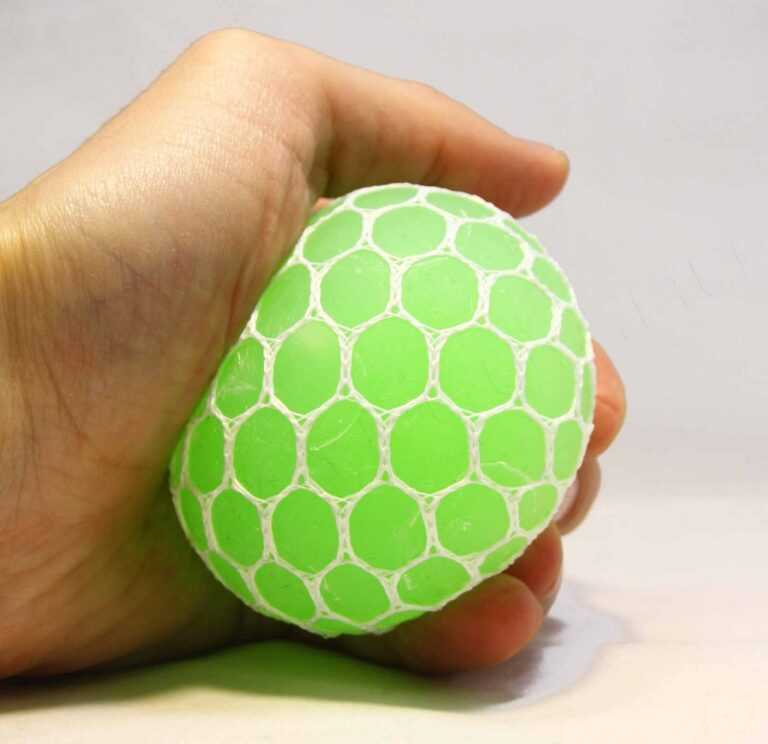
Eggs
Egg yolk is an excellent and affordable source of vitamin D, the lack of which negatively affects the immune system, contributes to rapid fatigue, mood deterioration, and can even lead to depression. Now we don’t often go out, so we can only make up for the lack of the “sunny vitamin” with food. However, you should not lean too much on eggs, the yolks can increase the content of "bad" cholesterol in the body. Eat eggs in moderation - 3-6 eggs per week.
© pixabay.com
Chamomile tea
Decoction or tea with chamomile flowers helps to reduce anxiety and anxiety. A study conducted by scientists from the University of Pennsylvania (USA) showed that chamomile has a calming effect even with generalized anxiety disorder (antidepressants are often prescribed for its treatment). This is a condition when a person experiences anxiety and excitement almost daily, while they are accompanied by severe fatigue, irritability, constant nervous fidgeting and tension in the muscles, as well as sleep disturbances.
Read also:
- Foods to help you stay energized all day long
- Named products that reduce the risk of developing type 2 diabetes
- 5 calcium-rich foods for those who do not eat dairy
- Yerevan is ready to establish relations with Baku on the principles proposed by the Russian Federation
- Stoltenberg: US will continue to help Ukraine regardless of election results
- Kherson conducts inspections to identify supporters of the Armed Forces of Ukraine
No need to frown: anti-stress food | ELLE
December is the most difficult month: the end of the year, pre-holiday bustle, winter beriberi and lack of sun affect the appearance and well-being. How to support yourself and not be blown away before the New Year? Just add one of these foods to your diet and you will instantly feel energized. ELLE has put together a list of gastronomic antidepressants.
How to support yourself and not be blown away before the New Year? Just add one of these foods to your diet and you will instantly feel energized. ELLE has put together a list of gastronomic antidepressants.
Salmon
100 grams of salmon contains the daily norm of essential (our body is not able to synthesize them) omega-3 fatty acids. They serve as a source of energy for the brain and nervous system. And low levels of these healthy fats lead to depression.
Mushrooms grown in the sun
The lack of sun in winter is compensated by mushrooms, which contain no less vitamin D than liver, egg yolk or fish. This vitamin activates the production of the mood-enhancing hormone serotonin in the brain. Shiitake, chanterelles and porcini mushrooms are especially useful. In champignons, this vitamin is not enough, because they grow in the dark.
Cherry
A bowl of cherries before going to bed, and a good mood in the morning is guaranteed. This berry is high in the hormone melatonin (a natural sleeping pill), which will ensure deep sleep.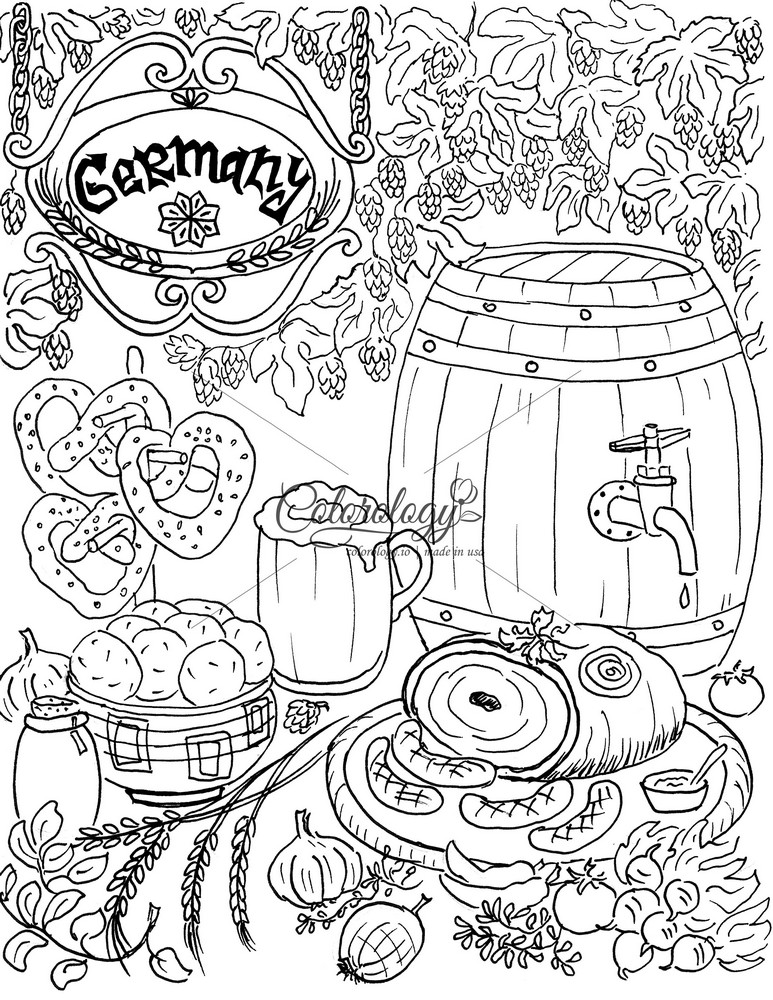
Amaranth
Packed with antioxidants, minerals, iron and fiber, this South American cereal controls blood sugar levels, increases levels of the antidepressant hormone serotonin and energizes.
Dates
If you can't resist sweets, replace a piece of chocolate cake with a couple of dates. Although they contain a lot of sugar, there are also enough useful substances: 15 minerals and more than 20 amino acids, as well as vitamins and fiber that will add energy.
Mussels
These seafood are an excellent source of anti-stress vitamin B12 and trace elements (zinc, selenium and iodine) responsible for the normal functioning of the thyroid gland and good mood.
Chard
Multicolored leaves are rich in magnesium, the lack of which leads to causeless anxiety and irritability.
Dark chocolate
Yes! And not just because it's delicious. A piece of dark chocolate or a couple of tablespoons of cocoa powder contains more antioxidants than a glass of red wine and a cup of green tea.



